What It's like to Live with an Eating Disorder: 10 Women Share Their Stories
In honor of National Eating Disorder Awareness week, meet ten inspirational women who have battled eating disorders.
-Diana Denza, BettyConfidential.com
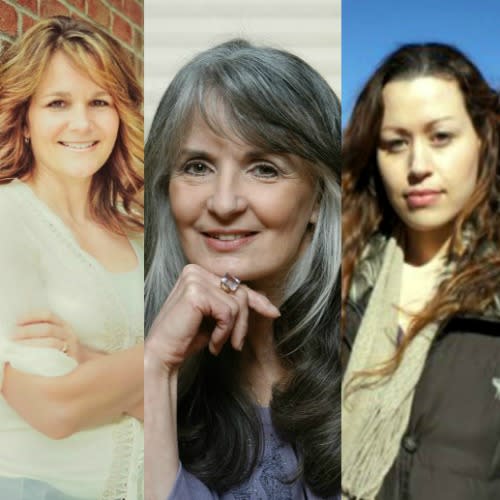
This week marks National Eating Disorder Awareness Week (NEDAW). Whether you're a survivor, know someone who has struggled with one, or have simply learned of its devastating effects, eating disorders have a very real impact on all of our lives -- nearly ten million women in this country struggle with an eating disorder, according to a National Eating Disorder Association Fact sheet updated in July 2010. To put that into perspective, Los Angeles County, the largest in the United State, has a population of roughly the same number.
Sadly, though the statistics are devastatingly high, misconceptions about those with eating disorders continue to thrive.
"There are many misconceptions about eating disorders," explained Susie Roman, Program Director of NEDA (nationaleatingdisorders.org). "But the myth that they are a lifestyle choice, rather than a serious disorder, is very dangerous, and one of the key reasons we hold National Eating Disorders Awareness Week. Education about the fact that they are complex, biologically-mediated illnesses with serious health consequences is vital for getting people to the help they need."
With a theme of "Everybody Knows Somebody," this year's NEDAW is a vital time to spread awareness and support for those harboring eating disorders. If you or someone you know is struggling with one, you can call NEDA at 1-800-931-2237 for more information and help.
In honor of this week of change, ten incredible women who have lived through eating disorders shared their stories with us -- and now, with you. It's time for all of us to put an end to the stigma and misconceptions.
Meet PJ Gach, BettyConfidential.com's Style + Beauty Editor:
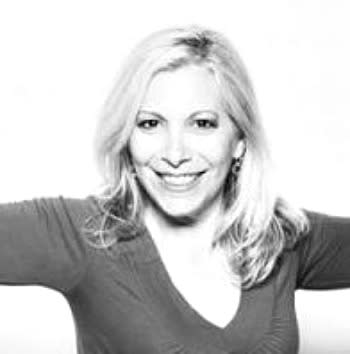
"You must embrace your life, your soul, you...you have to honor and respect yourself, even and especially if no one else does. Denying yourself food is denying yourself life."
PJ Gach, BettyConfidential.com's own style + beauty editor, lives and works in New York City to bring Bettys everywhere the best in fashion and beauty. She was just 11 years old when her eating disorder first started.
What your day to day struggles with your eating disorder like?
I used to imagine that there were needles and cut glass in my food so that I wouldn't eat. At dinner, I'd stare at my plate.
Did you receive professional help?
Sort of -- my doctor was flummoxed and felt that I would grow out of it. There would be periods when I ate normally, and period when I would binge. I come from a family where one doesn't talk about problems or issues. Everything is fine. Everything is lovely. Everyone is doing well. Obviously that's bullshit.
What was your breaking point?
In college, I was around 80 pounds. My hipbones literally jutted out of my clothing. I kept thinking it was sexy and it wasn't. One day -I didn't have an epiphanous moment -- I just started eating.
What was the most difficult part of your recovery process?
Not hating myself. Seriously -I realized along the way that I was punishing myself for not being popular, for not being tall, for a lot of things out of my control. You become anorexic because you feel like you have control over something and that is your body. It wasn't until I realized I wasn't the enemy that I began to make peace with myself.
To this day I keep a mental chart of what I eat on a daily basis. I always keep track of what I eat. And if I have something sweet, I know I can't eat something else. It's an ongoing battle. It's pretty normal for me to deny hunger until I'm shaking. You never fully recover from anorexia.
What would you tell people today who are suffering from eating disorders of their own?
That food isn't your enemy. That everyone isn't your enemy, that life isn't your enemy. You must embrace your life, your soul; you have to honor and respect yourself, even and especially if no one else does. Denying yourself food is denying yourself life. Nothing changes when you get down to 80 or 70 pounds, nothing gets better. Screw them all. Happiness is the best revenge against the people who you perceive to be your enemy. Truth to tell, they don't care. Live your own life for yourself and screw anyone who says "no" or "you're not good enough."
What did you wish more people knew about eating disorders?
That it's not a choice. That it's not a fun diet. It's an illness and people die from it.
Meet Cara Bledsoe:
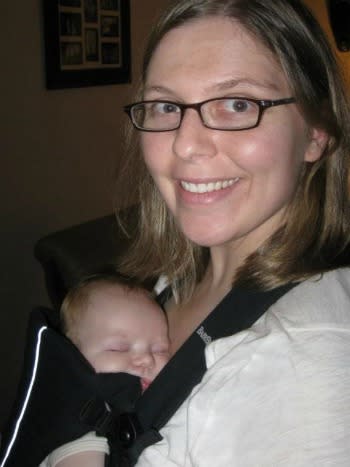
"People in our country think being thin is almost always a good thing, and it just is not true."
Cara Bledsoe is a 33-year-old freelance writer. Her eating disorder began at the young age of 15.
What were your day to day struggles with your eating disorder like?
I struggled with anorexia and bulimia for years, so it varied a lot. I lived a lot of my life in a binge/starve cycle (starve for four days, then eat for three, or something like this). In my 20s when I relapsed, I exercised about three hours a day while eating a very limited diet of "safe" foods. I dropped weight pretty fast. I was in "no excuses" mode, meaning if it was 11 pm and I had to get up at 6am (to work out before work started), but I hadn't done my 600 crunches, then I'd force myself to get out of bed and do them, because otherwise I'd be too anxious to sleep anyway.
When did you first realize that you had an eating disorder?
I didn't really realize it until college, and by then I'd been bulimic for year -- not throwing up as much as it was binge/starve, but it's all bad. And to a degree I was doing it all.
How did it affect your body and emotional well-being?
I was a very isolated person. I had my routines and it felt safest to stick with those. I didn't like to see people and I worried incessantly about how I looked to others. My body…well, it was fine then, but now I have osteopenia, recurring stress fractures, GERD, degenerative osteoarthritis, and more physical ailments that can be related back to lack of nutrients and/or exercise addiction.
Were you stigmatized or alienated for having an eating disorder? How did that feel?
Not really -the odd -and scary- thing is that when I was thinner, I got compliments. A lot of compliments. Partially this is because I was never skeletal, just a little too thin. In our society, sadly, that is seen is a good thing, never mind that I was completely insane and doing physical damage to myself that would last for the rest of my life.
What effect did your eating disorder have on your personal relationships?
I really had a hard time getting close to people for a very long time. I couldn't focus on anything but calories, fat, exercise, weight etc., and I didn't really want to.
How has your eating disorder changed your life?
I think the biggest way it's changed my life is that I'm 33 and I have the medical problems of a 63 year old -- osteopenia, degenerative osteoarthritis, and more. It's permanent damage. Plus, I've spent enough on treatment over the years that I could have put a hefty down payment on a house, and instead I'm in debt. I'd give anything to have that time and money back.
Did you receive professional help for your eating disorder?
Yes -- therapy, nutritionist, medication, psychiatrist, and 12 step meetings.
What was your breaking point?
I was lucky to work for someone amazing in my 20s who noticed what was going on and sent me to a therapist she knew who specialized in eating disorders. She really saved my life.
What was the most difficult part of your recovery process?
Gaining weight and people having the perception of me "letting myself go" when in fact it was quite the opposite. I was finally able to be a normal, happy person not focused on her appearance all the time.
What was a common misconception others had of you?
I was so healthy because I ate such healthy foods and exercised so much. Health can be a lot of things, but I wasn't healthy. People in our country think being thin is almost always a good thing, and it just is not true.
What did you wish more people knew about eating disorders?
You don't have to look like a skeleton to be really, really sick.
Meet Kari Adams:
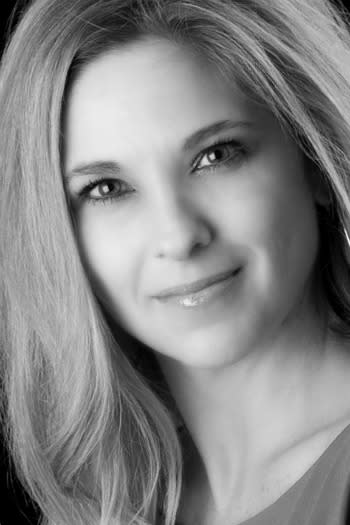
"I felt as though no one understood me or knew who I really was."
Kari Adams is 41 years old and is the CEO/Owner of "Princeton Elite Club" and a TV Host/Producer for "The Kari Adams Show" on Princeton's TV30. She is a professional matchmaker and lifestyle expert. She was 15 years old when her eating disorder first started.
What your day to day struggles with your eating disorder like?
During the times when I was at the height of my eating disorder my days were very depressing, isolating, and completely centered around my eating disorder. When my kids were off at school, there were many days I either spent in bed because I felt too disgusting in my skin to move, severely depressed (even suicidal at times) or I spent hours upon hours working out on my treadmill in my house. I obsessed about the next meal I would have, which would most likely be in the evening.
Sometimes I would obsess about when my next binge and purge session would be and what foods I would binge on before purging. When I went several days in a row without so much as eating a morsel, I would have dreams at night about food. I would suffer from low blood sugar attacks, have bouts of dizziness, and feel very lethargic and confused at times.
The more I thought about and obsessed about my body, my weight and my appearance, the more it perpetuated the obsessive thoughts. Each morning I awoke I would take off all my clothes and weigh myself, sometimes up to 5 times in a row looking for the most miniscule change (drop) in weight. Before even getting out of bed I would do body checks and measure my wrists and ankles with my thumb and each of my fingers making sure I could touch each finger to my thumb on the areas I was measuring. If my weight or body checks were not to my liking, I would punish myself all day long with abusive thoughts, restricting my food, over exercising, and bingeing and purging.
When did you first realize that you had an eating disorder?
Even though I have suffered since I was 15 with one form or another of an eating disorder, it probably wasn't until I was in my late 30s that I admitted to myself I had a problem food when a therapist brought it to my attention. At around 10 or 12 I went on my first diet and by the time I was 15 I began restricting and bingeing and purging. I have been a binge eater, starved, binge and purged, compulsively exercised and chewed and spit. I even took drugs, alcohol, diet pills, ipecac syrup and drank coffee excessively in order to lose weight.
How did it affect your body and emotional well-being?
Throughout the years of suffering with an ED, I have had physical issues such as decayed teeth, loss of my period for 3 years, loss of hair (I still have a spot that is slowly growing back now that I'm healthier), excessive gum bleeding, low blood sugar attacks, severe confusion and loss of memory, three broken bones in my foot from a minor fall, knuckle marks/scars, electrolyte imbalances, anemia, loss of toe nails from excessive running and working out, etc.
In your opinion, how much did Photoshopped/airbrushed/stick thin images of women/men in the media shape your opinion of your body?
It impacted it immensely and I found myself being obsessed with media images of celebrities and constantly comparing myself to women on the front of tabloids and on TV. I would cut out pictures of stars like Jennifer Aniston and tape them on my wall and over analyze myself in the mirror compared to their photos and wonder how much more I weighed than they did. I now have to be very conscientious NOT to even look at the magazines in the racks at the check-out counters and supermarkets and in bookstores so that I don't fall back into that cycle. Media images can be incredibly triggering for me, and other people in recovery from eating disorders, because our society puts a ridiculous and unrealistic emphasis on appearance and thinness.
What was your breaking point?
My family intervened and sat me down and said I was too thin and spiraling out of control and that I needed to get help. At 41 years old, I was tired of living this way and ready to receive help for my 25 year struggle with my eating disorder.
What was the most difficult part of your recovery (or attempted recovery) process?
Gaining weight, having to buy all new clothes in bigger sizes, and accepting myself for who I am and not caring what other people think of me. It's also been difficult to hear comments from people about how I look different now. When it comes to food, it was incredibly difficult to eat certain things like ice cream and waffles when I never allowed myself to eat foods like that before. I had trained myself to believe that there were "bad" foods that would make me a disgusting human being if I indulged in them and to stifle that voice while eating them was very challenging.
What did you wish more people knew about eating disorders?
I wish more people realized that eating disorders can affect anybody, at any age, and at any size. You don't need to look like a concentration camp prisoner to have an eating disorder. Many women, especially those with bulimia, are of average weight and most people have no clue that they are suffering. The worst thing someone can say to a person who is suffering from an eating disorder is, "You don't look like you have an eating disorder!"
Meet Jenni Schaefer:

"When I lost weight, people actually patted me on the back and told me how good I looked. I actually received compliments for having an eating disorder."
Jenni Schaefer is a 35-year-old singer, writer, and public speaker. She claims that disordered thoughts around eating first started at the age of 4, when she was in dance class and thought, "You are bigger than the other girls," and "You aren't good enough."
When did you first realize that you had an eating disorder?
I first realized that I had an eating disorder my senior year in college. I distinctly remember trying to make myself throw up for the first time, and I knew that wasn't healthy.
Other aspects of my eating disorder - like restricting food and losing weight - had been accepted and even celebrated by society, so I didn't recognize those behaviors as a problem. When I lost weight, people actually patted me on the back and told me how good I looked. I actually received compliments for having an eating disorder.
I struggled with anorexia and bulimia. At points during my struggle, I might have been diagnosed with EDNOS and binge eating disorder, too.
How did it affect your body and emotional well-being?
My eating disorder negatively affected every part of me from the hair on my head to the tip of my toes. I was even diagnosed with osteoporosis at 22 years old. Emotionally, I was a disaster. I was miserable and couldn't function in life.
Were you stigmatized or alienated for having an eating disorder?
I was never stigmatized or alienated! In fact, I always received positive words of support and encouragement when I told people about my struggle. People often said, "I know someone who has an eating disorder, too."
What effect did your eating disorder have on your personal relationships?
In therapy, I learned to personify my illness (I called mine "Ed," short for "Eating Disorder") and "divorce" myself from it. My primary relationship was with Ed. There wasn't room for anyone else. We were married, and it was truly like an abusive relationship where a woman is battered. I hated Ed and wanted to leave, but he convinced me to stay for so long.
Did you receive professional help for your eating disorder?
Yes, I saw a treatment team that consisted of a therapist, dietitian, psychiatrist, and internist for years. I also attended group therapy, 12-step meetings, and body image group. In treatment, I learned that my eating disorder was not really about food and weight. It was about underlying issues like low self-esteem, perfectionism, and constant self-criticism.
What was your breaking point?
I was sick and tired of being sick and tired. I didn't want to live one more day if it had to be with Ed. But I did, in fact, want to live. This desire for something more pushed me to get help.
What was the most difficult part of your recovery (or attempted recovery) process?
The most difficult part of my recovery was letting go and having faith that being recovered didn't just mean that I would be fat and miserable. (If I had to choose between "thin and miserable" and "fat and miserable," I thought I'd choose thin.) I had to let go of rigid food rules and embrace an intuitive approach to eating. I had to let go of society's thin ideal and learn to love my body at its natural size. These were the biggest challenges.
What did you wish more people knew about eating disorders?
I wish people had known that eating disorders come in all shapes and sizes. A big hurdle to my getting help was that I didn't "look" like I had an eating disorder much of the time. The truth is that there is no certain way a person with an eating disorder looks.
Are you now involved with organizations that help others with eating disorders (or have you written a book, make speeches, etc.)?
Today, I work to spread the message of full recovery through my writing, singing, and speaking. My first book, Life Without Ed, talks about my marriage and subsequent divorce from Ed. My latest book, Goodbye Ed, Hello Me, takes the journey a step further-from recovery to liberation. It talks about jumping into life and being fully recovered. (Period.)
I recently released my first CD titled phoenix, Tennessee. This was a huge feat for me, because Ed stole my ability to make music for years. I am honored to be the Chair of NEDA's Ambassadors' Council as well a Consultant with Center for Change treatment program in Orem, Utah. For more information, please visit jennischaefer.com.
Meet Jill Tarpey:

"Dancing for 6 hours, working out for 2 hours, and eating 500 calories a day was my life."
Jill Tarpey is a 28-year-old yoga instructor. Her eating disorder first started at the age of 18.
When did you first realize that you had an eating disorder?
I first realized I had an eating disorder when I went back to school after my sophomore semester break. I was a dance major at a prestigious dance conservatory in New York and had spent the break back home with my family in Texas. I knew that I was struggling with something but I didn't think it was an eating disorder; I thought that it was just pressure from school and being a normal dancer concerned with her body. However, being back at home, seeing my families concern and worry for my health and happiness, and experiencing how hard it was to hide my behaviors and struggles made me realize that my problem was much bigger than I could have ever thought possible.
When it came time to return to school, I didn't want to go. I just wanted to stay at home with my mom, close to her love and comforts. I had worked my whole life to become the dancer that I was and training was the only thing I knew. I had always been so excited to dance, but now all joy was stripped away by my eating disorder. I had no desire to dance, no desire to pursue my goals, no desire to reach for my dreams that I had since a little girl. Upon return to school, the faculty approached me and told me to stop losing weight. But at that point it was too late, I was already in a downward spiral. It was just two weeks later that the conservatory sent me home on medical leave. I packed up my bags and headed back to Texas, absolutely devastated.
I was suffering from anorexia nervosa and compulsive exercising. Dancing for 6 hours, working out for 2 hours, and eating 500 calories a day was my life.
How did it affect your body and emotional well-being?
All joy and life was stripped away from me while I was consumed with my eating disorder. Before I was ill, I was a joyful, kind, loving, and genuine person. Once ED took over I was mean, hateful, lost, broken, and depressed.
Physically I looked like I aged about 15 years. I was 19 years old at the time I started treatment, but looked like I was in my 30s. I lost a lot of hair, was wearing children's size clothes, and experiencing the numerous medical complications that anorexics battle: extreme low heart rate of 25 and kidney failure. I was admitted to the cardiac unit of the hospital as they feared heart failure at any moment. My kidneys were also failing and I lost my menstrual cycle, something that I am still struggling to get back to normal.
Were you stigmatized or alienated for having an eating disorder? How did that feel?
A lot of people were really apprehensive about being around me. I can't blame them, I wasn't a pleasant person; I was too busy thinking about food, weight, calories, etc. I am from a small town, so when I was sent home from school a lot of rumors went around that I had cancer or some type of life threatening illness since I had lost so much weight and was facing so many medical complications.
In your opinion, how much did Photoshopped/airbrushed/stick thin images of women/men in the media shape your opinion of your body?
For me, my body image was based more on other dancers and the influence from my professors and mentors. The need to be thin was strongly encouraged and many girls were sent home from school because they thought they did not have an ideal dancer's body. This is what originally sent me into a tailspin of unhealthy dieting that led to my ED. I was so fearful about being sent home and all my dreams being crushed, I was willing to do anything to keep my place there and to continue to move up in the company.
What was your breaking point?
I was at Renfrew Center in Coconut Creek, Florida for about 3 months. It was the hardest thing I have ever done, but also the best. One day during a group session the speaker turned to me and asked me why I was rejecting the body that God gave me, the body that is my vehicle through life? I couldn't answer because I was so ashamed. I knew that I was killing myself and I decided at that moment that I had the opportunity to fight my ED and change. After that, I began to put my trust back in God and in my faith that I deserved to be healthy and whole so that I could live the life that I was meant to live.
What was a common misconception others had of you?
That I was constantly lying. When you have an ED you lie a lot. You are hiding your feelings, emotions, body, and distortions, all with your ED. So, lying is a very common behavior among ED patients. When I started to speak my mind, feel healthy, gain strength, and begin to work through my issues it took a lot of time for my treatment team and family to trust me again.
Visit Jillian's blog at jilliantarpey.blogspot.com.
Meet Michelle Leath:
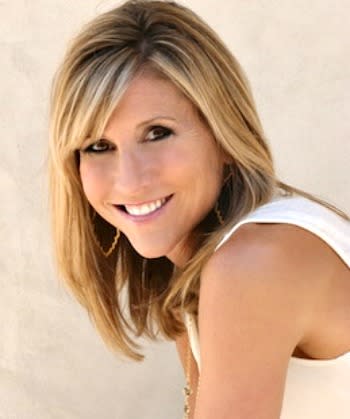
"What I found as I started opening up was that almost everyone I told responded either, 'me too' or 'I know someone.' The shame has to stop somewhere, so I made a decision that it would stop with me."
Michelle Leath is a 44-year-old personal coach and business owner. Her eating disorder first began at the age of 18.
What were your day to day struggles with your eating disorder like?
At the peak of my struggle from 18 to about 22, I was bingeing and purging up to five times a day. I lived with a constant fear of food and getting fat, from the time I woke up until the time I went to bed. Every time I ate, I worried about the food becoming fat on my body. I would start every day with a strict set of rules about what I felt was acceptable to eat, but as soon as I deviated from that I would go right into a binge. I lived with a multitude of rules around what foods were good and what foods were bad. I was constantly torn between my body's desires and cravings for nourishment and my mind's rules and restrictions. Fear, worry, self-criticism, self-judgment, and shame were the primary emotions in the background of my mind. I would often go to bed at night feeling weak and helpless and praying for the next day to be "good."
Were you stigmatized or alienated for having an eating disorder?
I knew that other people knew about my problem and talked about me, and that was very painful. I felt embarrassed and ashamed. I have always been a highly sensitive person (like many women who struggle with eating disorders) so the thought of others speaking unfavorably about me definitely hurt. There was so much pressure in my college community to be thin and fit. It was a very competitive environment, and I often felt that the other girls thought I was cheating by being bulimic. Little did they know that it sure didn't feel like a choice and it came with a whole lot of pain, suffering and shame. I would have gratefully traded places with someone else.
What effect did your eating disorder have on your personal relationships?
It definitely disconnected me from meaningful friendships and social relationships. When it was really bad, I would opt out of social plans because I wanted to stay home and binge. Or if I did go, and there was food involved, I would be so obsessed and consumed with how much or how little I was eating that I couldn't possibly enjoy myself or truly connect with anyone. Sometimes I would excuse myself early so I could go home and purge. It was a kind of self-chosen isolation.
It also affected my romantic relationships over the years. My body criticism prevented me from being able to truly open up and enjoy physical intimacy. And really, my bulimia was a symptom of an inability to speak my truth. I lacked the self-esteem to make self-honoring choices, and had a tendency toward bottling up what was important to me in order to avoid conflict or abandonment in relationships. This led to some poor relationship choices, and definitely impacted my marriage negatively.
How has your eating disorder changed your life?
There was a time that I thought my eating disorder was ruining my life. But now I see that my eating disorder was a gift in so many ways. It served as a coping mechanism to help keep me feeling safe at a time when I felt very unstable in life. It prompted me to look much deeper into who I am and what I had been believing about myself, in a way that allowed me to grow far more than I ever would have without it. It has given me great compassion for others who struggle with food and low self-esteem, and it gave me the life experience to be able to support others from a place of true understanding.
I actually wrote a thank-you letter to my bulimia last Thanksgiving, which is posted on my blog.
What did you wish more people knew about eating disorders?
That they are extremely painful for the people who experience them. That they are starting younger and younger and we all have a responsibility to create a healthier climate of self-acceptance beyond physical appearance for our girls and boys. That we all have the power to stop perpetuating the negative body talk in our social circles. That eating disorders are not a weakness, but a sign of very strong spirit longing to be recognized and honored.
Meet Angela Huntley:
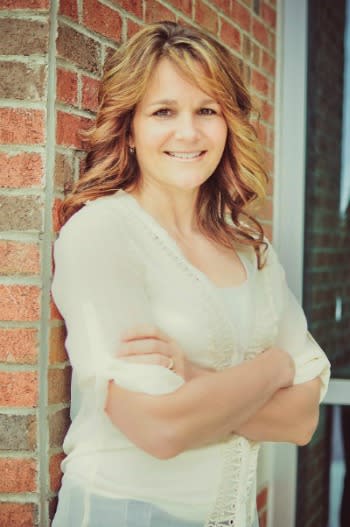
"I looked at the bodies of models and set the standard for my own figure."
Angela Huntley is a writer, ministry worker, and mother of four sons. She first started abusing laxatives at the age of 11.
Can you give us an idea of what your day to day struggles with your eating disorder were like?
Every day from the time I was 11 until I was 28 years old was spent obsessing about my body size and my eating. My thoughts were consumed with how big I was, what measures I was planning to be smaller, checking to see if I was bigger or smaller than the day before, how much food I would allow myself to eat, what the nutritional content was to whatever food I would allow in my body, and the list goes on. I was consumed. Everything else in my life took second to this religion I had created, and I worshiped it faithfully.
When did you first realize that you had an eating disorder and what type did/do you have?
From the time I was 11 until age 16, I was bulimic: abusing laxatives as a way of purging. When I was 16 I began starving myself to drop more weight, so technically I would've been classified anorexic at that time. After about a year, I slipped back heavily into the binge purge cycle, again classifying me as bulimic. Although my addiction was completely out of control, it wasn't until someone who had been bulimic confronted me when I was 18, that I realized my problem was an eating disorder. Even though I had learned a little bit about eating disorders at school, I never made the connection for myself. I just always figured I had a strange, freakish problem with food that no one else had.
How did it affect your body and emotional well-being?
My body was completely reliant on laxatives. It didn't work on its own. In treatment, it actually took me about three weeks off of laxatives for my body to kick in and work for itself. When I was under-weight, I actually grew chest hair. I rarely had a period. I was moody. After being under-weight, the binge purge cycle caused me to gain weight. This sent me into a deep depression. I had trouble getting out of bed. I would sleep all day, getting up to binge and purge and work-out. I didn't want anyone to see me, because I felt like such a failure for not being extremely thin anymore.
What effect did your eating disorder have on your personal relationships?
There was always a part of me that no one knew. My eating disorder was like a secret life I was living. Although people had ideas of my dysfunction, no one could possibly know the lengths to which I was going. For those closest to me, who tried to confront me, I became a liar. I had no problem lying and manipulating to pacify others, so that they'd leave me alone. There were many times that fights arose between myself and those meaning well, just wanting to help. This just caused me to be more isolated.
What was your breaking point?
A woman who used to be bulimic confronted me and told me that because of the danger involved, she would have to go to my parents and tell them the truth about me. This would reveal a whole secret life of mine. Once everything was out in the open, everyone thought that I'd be able to just stop my behavior. I was at such a low, but I also wanted to be free of this prison I had been in. That's when it really hit me: I couldn't stop. I wanted to stop, but was totally out of control, a complete slave to my addiction. It was then that I knew I needed help.
What was a common misconception others had of you?
Everyone around me thought I was happy, and had my life so together. I was a very good actress.
Meet Janet Pfeiffer:
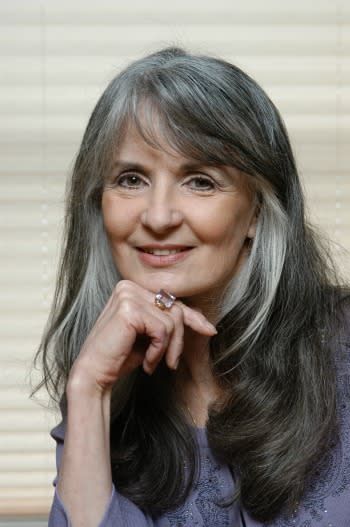
"I hated my life enough that I decided I would rather be dead than go through another day with bulimia. I never looked back."
Janet Pfeiffer is a 63-year-old motivational speaker, author, and radio host. Her eating disorder initially started at the age of 33.
What were your day to day struggles with your eating disorder like?
Each day was a constant struggle from the time I woke up until I went to bed. I was consumed with thoughts of food. My day was planned around eating, which was all done behind closed doors. I'd rise at 3:30 am, power walk 12 miles and the binging would begin. I'd consume high calorie foods, mostly carbs and sugars, for approximately 2 hours. When I couldn't eat anymore, I'd head for the bathroom and purge.
I repeated this ritual twice a day for more than 10 years. The longer it went on, the harder it was to purge. Initially, I used only my finger. Then I needed a spoon to fit further down my throat, then a plastic straw. One night, I even took medication designed to enable me to vomit. Every time I became emotional, whether I was stressed out, feeling unloved or ugly, when I was sad or angry or tired, I reached for food to comfort me. Growing up in a big Italian family, food was the answer to everything. It was the only way I knew how to nurture myself. I was a single mom with 4 children. My husband of 13 years left me without warning and I was overwhelmed with responsibility, fear, worthlessness, loneliness, and more. Food was my only source of comfort.
When did you first realize that you had an eating disorder?
I knew the first time I stuffed myself (dinner at my mom's around Christmas time) and came home and got rid of it. I was bulimic.
How did it affect your body and emotional well-being?
Emotionally it did more damage than physically. I was fortunate. I had some physical problems: graying skin, brittle hair, burning of the esophagus, stomach pains, racing heart. But emotionally, I was disgusted with myself. I was ashamed and felt weak. I should know better. I'm stronger than this. I felt as though I was betraying my family (although for the first 8 years no one knew). But more importantly, I felt like a failure in God's eyes. He gave me a healthy body and I was destroying it. Shame doesn't accurately describe how low I felt.
What effect did your eating disorder have on your personal relationships?
I was unable to eat in front of anyone because once I put food in my mouth I wouldn't be able to stop. And, I didn't eat dinners for 15 years. I'd consume all my calories by noon, giving me enough time to burn them off before morning. I turned down invitations to go to lunch or dinner with friends and family. I had to constantly lie when I was with them saying things like, "My stomach's not feeling well so I don't want to eat anything." Some people would try to force me to eat. I literally had to stay away from them. It was very isolating.
What was your breaking point?
December 6 (I remember the date but not the exact year), a young friend of mine called me to tell me he was 16 days clean from cocaine. I was so proud of him. When I got off the phone, something inside me clicked. I thought, "If he can do it then so can I!" I hated my life enough that I decided I would rather be dead than go through another day with bulimia. I never looked back.
What would you tell women/men today who are suffering from eating disorders of their own?
Don't beat yourself up because of it. It does not define who you are nor does it diminish your worth. You are still a valuable and wonderful person. You are just temporarily struggling with some issues. There is hope. Thousands of us overcome and heal from eating disorders and you can as well. Get help. Don't be ashamed. It might take a while but you can regain your life and health. Use every resource available to you. Reach out to God. He is the source of all healing. I healed and so can you.
Meet Annabel Adams:
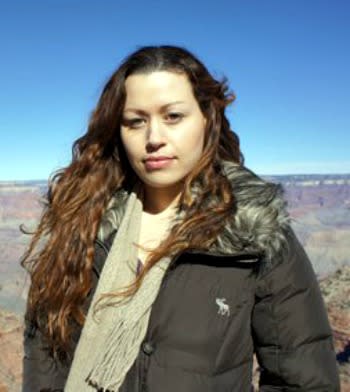
"We cannot for one second forget in this society that the general consensus by the CDC and mainstream media is that our size is an indicator of our health, our beauty, our status, and our character. This messaging haunts me every day."
Annabel Adams is a 28-year-old freelance writer and PR manager. Her eating disorder first began when she was 26.
When did you first realize that you had an eating disorder?
I think I have pretty much always had a dysfunctional relationship with food - it has just manifested itself differently over the years. The main source of this dysfunction has been a "dieting mentality." For the majority of my life, I had never privileged actually listening to my needs or approaching my body and myself with mindfulness and compassion. Rather, I've gone through the continuum of compulsive overeating and binge eating to bulimia. Of course, each of these left with riddled with guilt. This is why my weight has fluctuated from 9th grade at 150 pounds to 12th grade at 280 pounds. Since bulimia seems to have higher risks than my previous relationships with food, I consider it my main "eating disorder," but it is certainly just one manifestation of a restriction/compensatory/dieting approach to food.
The first time I successfully purged was after a dinner cruise. I was at my lowest weight in my adult life and I felt amazing from all of the applause I was getting. However, I also felt like I was walking on egg shells, wondering how I could maintain the weight and sustain the lifestyle that afforded me the time and energy to achieve that low weight (I was counting every calorie and working out at least an hour per day, usually running over 6 miles per day). During the cruise I had eaten both a slice of cheesecake and a slice of chocolate cake. I felt immediate guilt and imagined how many calories had entered my body. I worried that this "slip up" would somehow send me on a path of no return and I imagined that all of a sudden, I would be morbidly obese again. It's an all-or-nothing mentality.
And, so, I decided that by throwing up the food, just once, I could wipe the slate clean and start over. I would never overindulge again. This would be a once-in-a-lifetime thing - I'd never invoke vomiting again. I didn't realize then that with purging came an incredible sense of satisfaction - as if I was cheating the system! I had eaten cake - two slices! - and it was like it never happened (aside from the strained throat, dry eyes and occasion burst eye vein)! This catapulted me into a love-hate relationship with bulimia.
What effect did your eating disorder have on your personal relationships?
I had to tell my close friends and family to limit their "fat talk" and to try to limit their discussions about weight-loss around me. Unfortunately, this didn't seem to work too well. Our society is addicted to body-hate and asking people to limit their negative self-talk and discussion of weight-loss around me seemed futile, especially since I am a poster child for weight loss. People always want to talk to me about weight loss and I do, too! So, it was a hard time because I was trying to redefine my own self-perception and create alternate ways for thinking about my health and body. And when participating in discussions, I would often still revert to habit, which was "I still need to lose _ pounds" or "I'd like to weigh __ pounds." I have had to distance myself from people who I feel trigger me to feel my weight is an important indicator of my health and/or character. My boyfriend, thankfully, has been a limitless source of support. So while outing my bulimia put a strain on some relationships where we could not escape fat-talk, it brought me even closer to my boyfriend who has consistently reminded me that my health is our number one priority.
How has your eating disorder changed your life?
My eating disorder hasn't changed my life - it's shaped my entire life. From the beginnings of compulsive overeating to the binge and purge cycle, how I've manifested my eating disorder has shaped how I view the world and how I interact in it. I am happy to say that I am now in a place where I feel empowered rather than victimized. I feel that I had to take this long and arduous journey to come to a place of enlightenment and now it's my job and passion to continue to educate myself and to educate others. It's so easy for us to go through life with our eyes half-closed, repeating the messages we see on the news, forgetting to listen to our own bodies and to strive instead for some unrealistic projection simply because so many others do. I feel that I've escaped the grasp of mainstream media; I've escaped body hate; and now I want everyone else to escape it, too.
What was the most difficult part of your recovery (or attempted recovery) process?
I think it's incredibly hard to be someone "in recovery" in a) a world that privileges thin and b) a world where media is ubiquitous due to its digitalization. Even now, while I have not purged in quite some time, I still find myself feeling triggered when I go onto Facebook and someone mentions how much weight she's lost or how she is detoxing or someone else mentions how fat she feels. Then you turn on the TV and it's a Weight Watchers commercial. Then the news flashes that we have an obesity "crisis" or "epidemic." We cannot for one second forget in this society that the general consensus by the CDC and mainstream media is that our size is an indicator of our health, our beauty, our status, and our character. This messaging haunts me every day.
Are you now involved with organizations that help others with eating disorders (or have you written a book, make speeches, etc.)?
I write a blog, www.feedmeimcranky.com, where I've been vocal about my entire journey from morbid obesity to healthful weight loss (lost 150 pounds in a healthful way) to my obsession with "being thin" and my year and a half struggle with bulimia. I now make it a point to educate others (including health professionals!) on how to approach health from a compassionate and mindful perspective rather than from a sizeist and discriminatory point of view.
Meet Kimberley Walsh:
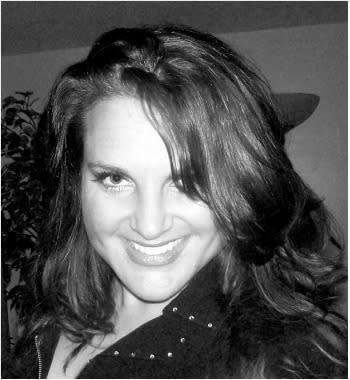
"Everyone thought that my life was perfect."
Kimberly Walsh is a 40-year-old marketing consultant. Her eating disorder began when she was 13.
What were your day to day struggles with your eating disorder were like?
My day to day struggles consisted of constantly thinking / obsessing about when I could eat next, what I would eat and, most importantly, where I could throw up when I was done. Because I was working full-time, my binges generally occurred at the office and, as such, I had to plan accordingly. This typically involved several trips to local fast food places throughout the day. Then, to compensate for the time spent away from my desk, I would have to work late. I would also take handfuls of laxatives and diuretics throughout the day resulting in an inordinate amount of time being spent in the ladies room. This was a never-ending cycle for many years.
When did you first realize that you had an eating disorder?
I knew what I was doing the first time I threw up. I had heard other girls talking about something called "bulimia" wherein you got to eat anything you wanted without gaining weight. All you had to do was shove your finger/hand/toothbrush/spoon down your throat after each meal, and all the calories would be flushed down the toilet.
How did it affect your body and emotional well-being?
Quite frankly, my bulimia enabled me to eat the same food (and quantity) that all the "normal" kids were eating without ever gaining too much weight. It seemed like the perfect solution to my inability to lose weight with just diet and exercise. Physically, I had small scars on my hands (caused by excessive stomach acid), constant acid reflux, puffiness and dark bags under my eyes, erosion of my gums and enamel on my teeth (required several gum graph surgeries so I didn't lose some of my teeth), constant fatigue, persistent constipation, and worst of all, a lingering scent of vomit on my person … all the time.
Emotionally, I carried around a substantial amount of guilt because I was always hiding, sneaking, planning, making excuses. Yet, I was conflicted because I also felt "in control" of my body and, moreover, it got to the point that every time I purged, I would feel euphoric - kind of like the "high" a drug addict gets when using.
Were you stigmatized or alienated for having an eating disorder? How did that feel?
I think my bulimia arose from an initial overeating disorder. As a child, I would always find comfort in food which, in turn, meant I was always on the "chubby" side. When I hit puberty, being even the slightest bit chubby was no longer acceptable. So, yes, I was made fun of, but not for the bulimia per se, but for being a "big girl". (I use that phrase because when I look back at photos of myself during that time, I was NOT fat! However, I WAS bigger than all the other kids, i.e. taller, larger bone structure, etc.) I'm positive that the constant teasing and ridicule from my peers was instrumental in the development of my eating disorder.
Did you receive professional help for your eating disorder?
I was admitted to the Rader Institute on an emergency basis during my freshman year of college. I went through intense therapy, meetings, counseling, medical diagnosis and treatment, etc. for 6 weeks. They modeled their program after the 12-step program used by Alcoholics Anonymous - substituting "food" or "binging/purging" for "alcohol" (same general concept). I continued in after care, group therapy, individual therapy and, finally, hypnosis.
What was your breaking point?
Unfortunately, I never really had a "breaking point" so to speak. They say that most people have to hit some sort of rock bottom before getting into recovery. I never experienced that, nor have any of the other bulimics I have known (with a few, very rare, exceptions). In my case, what caused me to stop barfing was the phen-phen diet. It was like a magic pill that made me not hungry and, if I didn't eat, I didn't need to throw up! I thought I had died and gone to heaven. Moreover, I thought I was cured. I was painfully mistaken. What I did have was a temporary reprieve from my eating disorder - only to be reunited again once the pills were taken off the market. So, inevitably, I gained weight - further exacerbating my disease and actually kicking it into overdrive. For the next several years, I continued on this path of self-destruction until, finally, I had to face the cold, hard truth… It was not working anymore. No matter how much I binged and purged, I simply could not lose any more weight. I would say that realization was actually my turning point.
What was a common misconception others had of you?
By far, the biggest misconception was that everyone thought that my life was perfect. I had countless friends, a successful career, always pursued by attractive and successful men, active in the community, etc. All of these seemingly wonderful attributes were always undermined by my secret addiction and all the pain, guilt, depression, suffering and embarrassment that came with it.
What would you tell women/men today who are suffering from eating disorders of their own?
I would tell them to stop focusing on the "symptom" and roll up their sleeves and dive in to really figure out the underlying problem. Nothing will change if you keep treating the symptoms by applying the proverbial band-aid. You must take a personal moral inventory and a hard, honest look at the root issues that caused and subsequently perpetuated the behavior. Until this happens, you will keep chasing your tail and will continue to be stuck in the disease.
More BettyConfidential.com
What Your Kitchen's Been Missing
Open the Lines of Communication
Jon Hamm's 'Mad Men' War Stories

